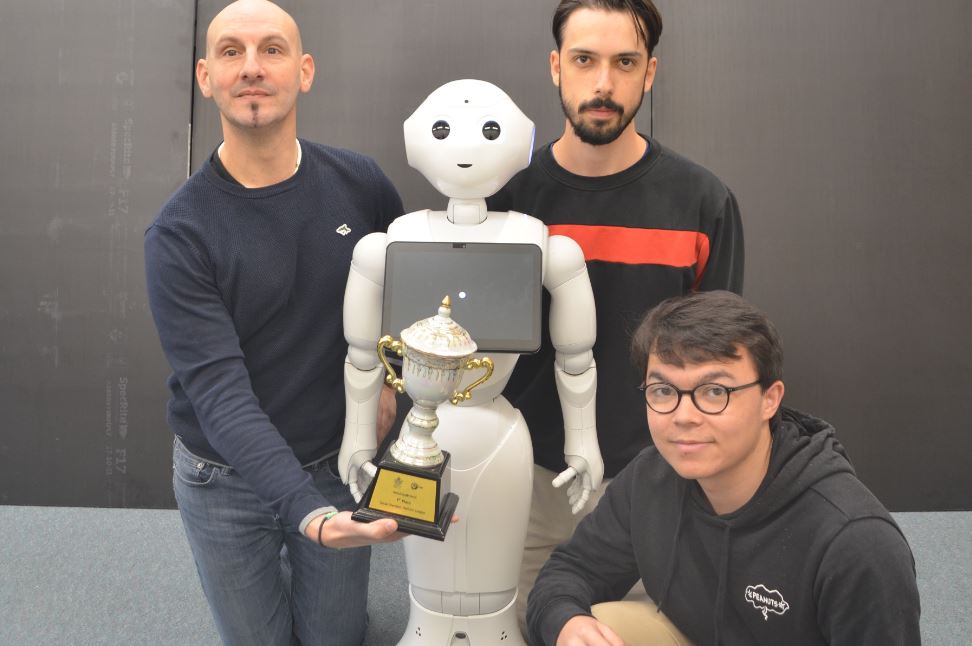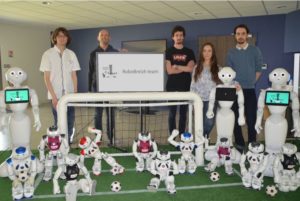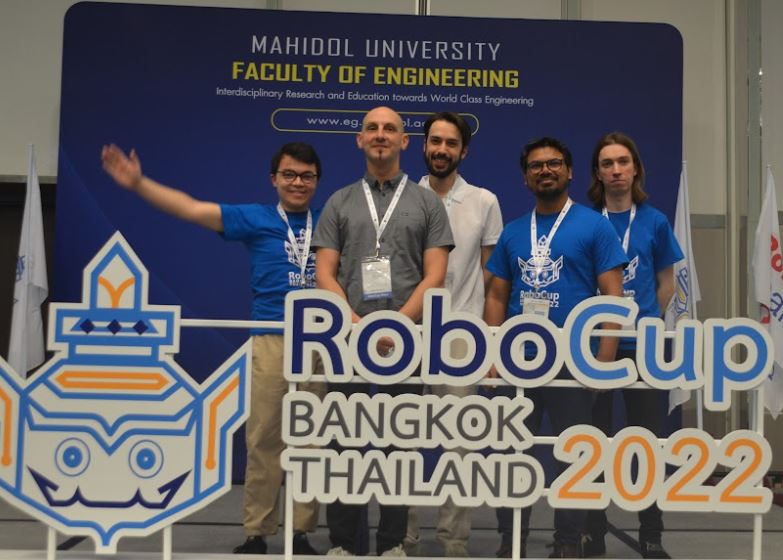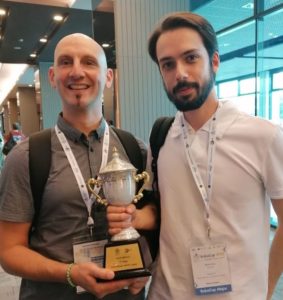
Visiting French robotics experts are researching ‘Pepper’ humanoid robots at Flinders University, fresh from success at the international RoboCup finals in Thailand.

Professor Cédric Buche, who is a visiting scholar at Flinders University for a year, and PhD student in cotutelle Maëlic Neau, from the National Engineering School of Brest (ENIB) in France, were part of France’s RoboBreizh team, which programmed their robots to play soccer in this year’s RoboCup@Home league. The league aims to develop service and assistive robot technology with high relevance for future personal domestic applications. It is the largest annual competition for autonomous services robots.
Professor Buche and Mr Neau are continuing their research at Flinders University with masters student, computer science engineer Thomas Ung, as part of the Lab-STICC and French-Australian IRL CROSSING project.

Under the supervision of Flinders University Professor of Maritime Engineering Karl Sammut and Associate Professor in Artificial Intelligence and Robotics Paulo Santos, from the College of Science and Engineering, Mr Neau’s PhD topic is ‘Commonsense Reasoning for Identifying and Understanding the Implicit Need of Help and Synthesizing Assistive Actions’.
“I am focusing on understanding human’s needs and goals in daily life tasks from a robot’s standpoint, for example, understanding that someone may need gloves when opening an oven,” he says.

With the Robotic Lab at Flinders at Tonsley, Professor Buche is also working on research on the integration of automated reasoning with deep learning models towards explainable AI systems.
The research focuses on Pepper, a semi-humanoid robot which is designed with the ability to read emotions based on detection and analysis of facial expressions and voice tones.
The visiting academics will be in Adelaide until late 2023.
The RoboCup initiative is an international scientific initiative with the goal to advance the state of the art of intelligent robots. When established in 1997, the original mission was to field a team of robots capable of winning against the human soccer World Cup champions by 2050.

